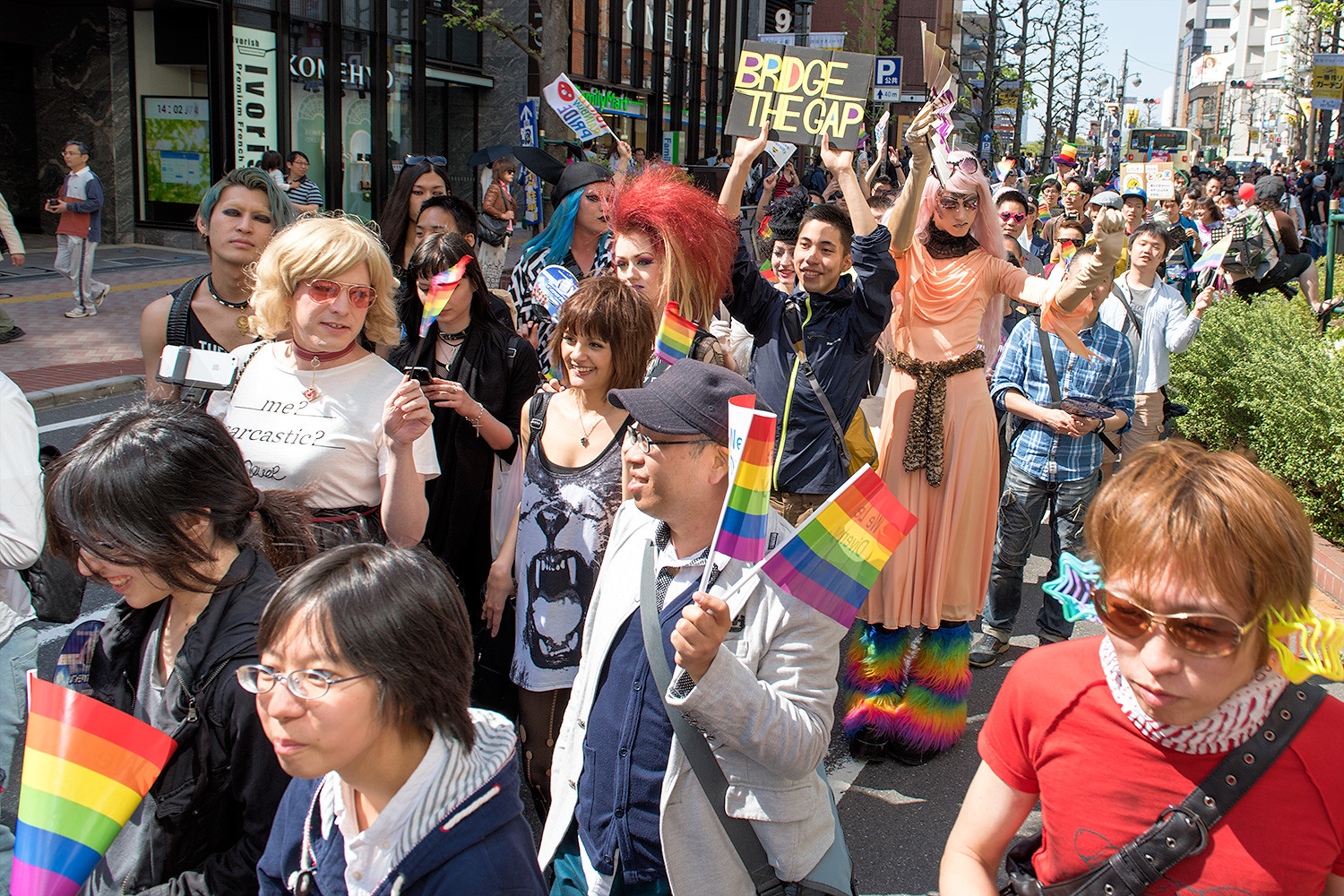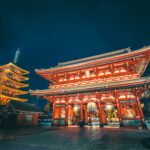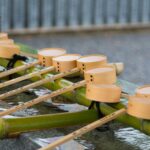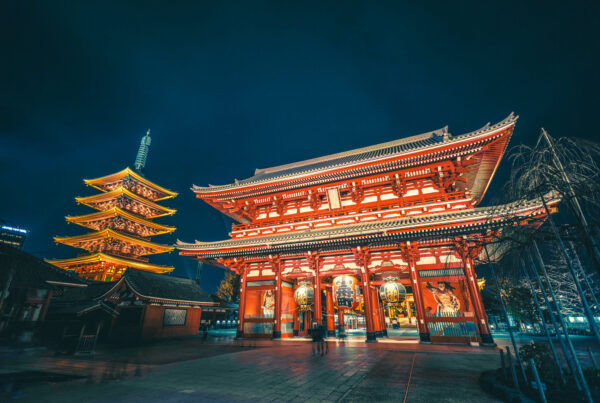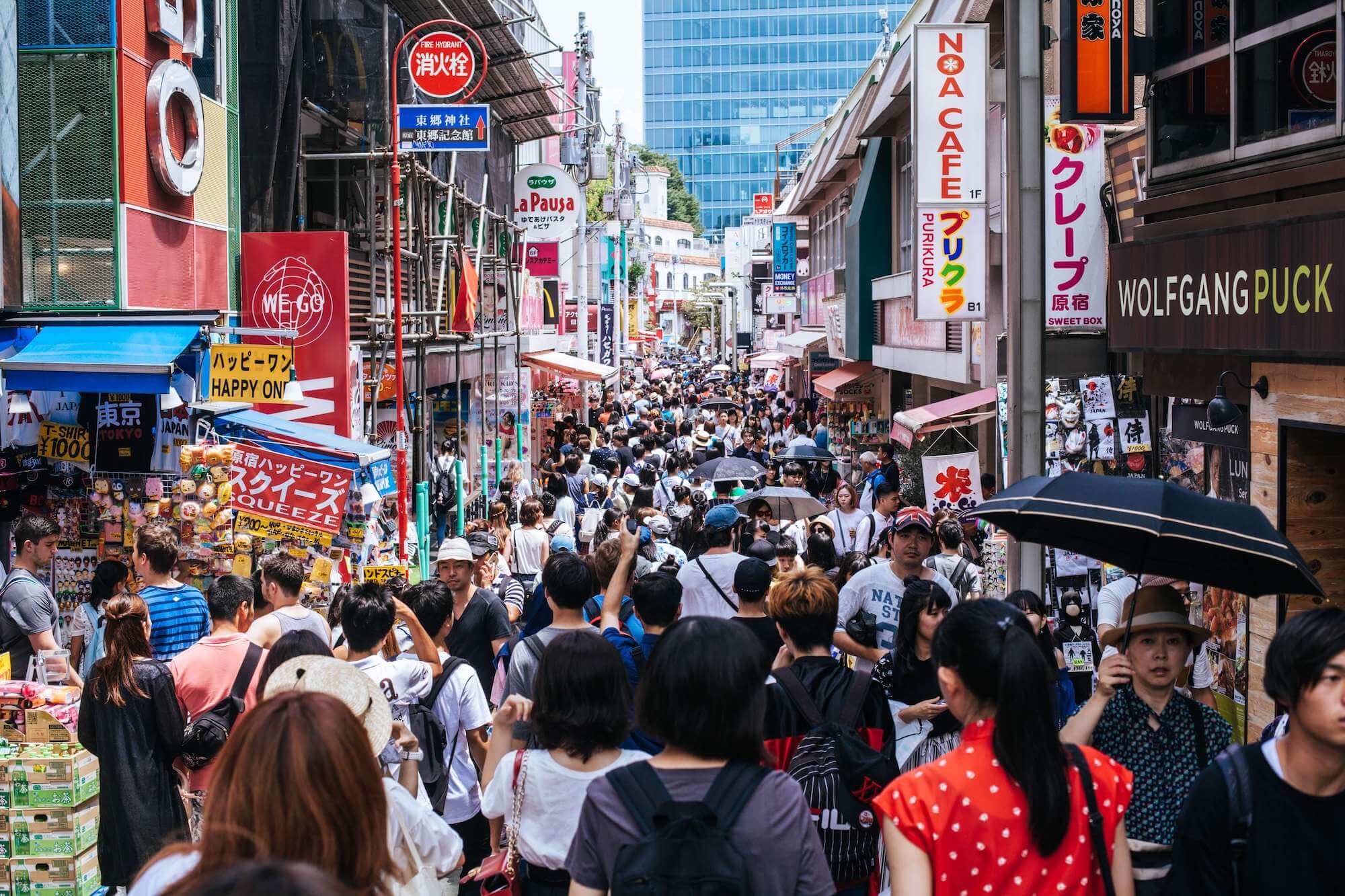Is Japan LGBTQI-Friendly? – Say, for example, it’s your first visit to Tokyo. You decided to begin your holiday by checking out lively Shinjuku. You did some shopping in sprawling Shinjuku Station then had dinner at the atmospheric Omoide Yokocho. Following which, you braved the crowds of Kabukicho, and located Golden Gai, where you had a drink.
Slightly tipsy, you continue your exploration eastwards, and soon, you find yourself in a rather different part of town. There’s nothing at all sinister but you do notice a prominent gay-orientated bookshop, as well as many other establishments obviously targeting for the gay market. The ambiance is subtle. You also notice several gay men and couples about. Hey, at some of the cafes, there’s even a significant number of western tourists, these not just men.
What would be your impression if the above happens? Would you get the impression that Japan is quite LGBTQI friendly? Or at least, Tokyo is gay-men friendly? If so, that’s only to be expected. However, like many social issues in this colorful country, homosexuality in truth exists in a curious balance with social and cultural mainstream expectations. A balance that is often baffling, maybe even inexplicable, to other nationalities.
But that’s jumping ahead. To begin to understand Japanese LGBTQI issues, one first has to be familiar with the status of homosexuality in Japanese history, and how it has long been regarded.
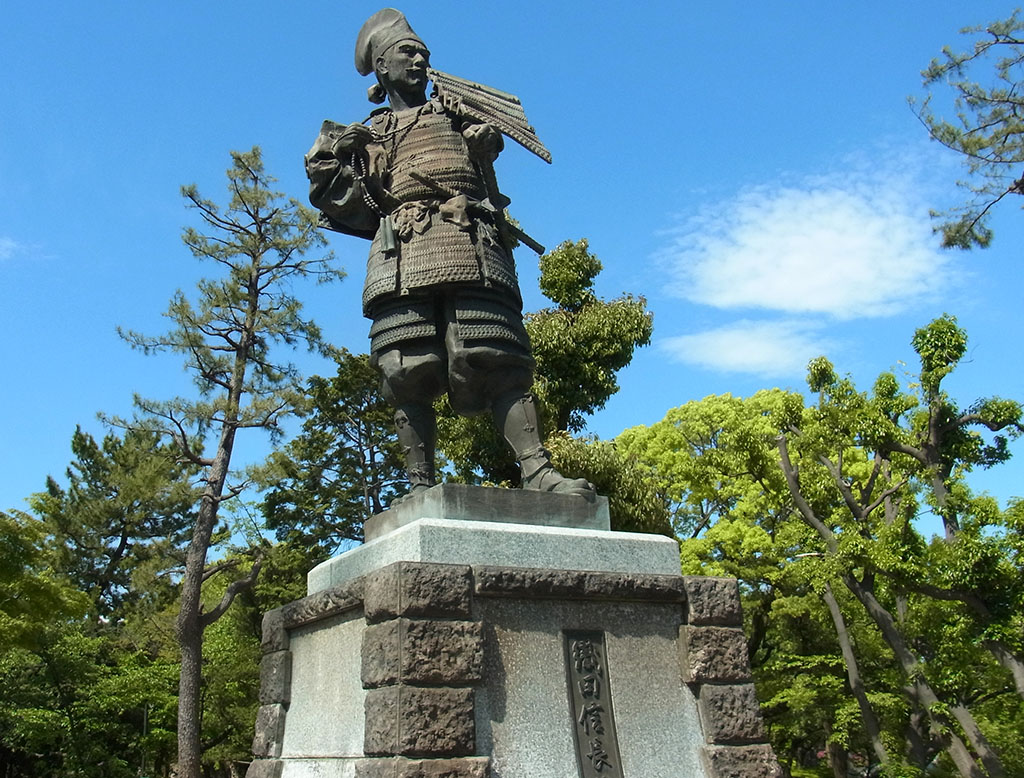
It is believed that the legendary warlord Oda Nobunaga had an active homosexual relationship with his retainer, Mori Ranmaru. (source: commons wikimedia)
Table of Contents
Homosexuality was, and is still, tolerated in Japanese culture
For the unfamiliar, it might often seem that few other Asian countries, or even Western ones, embrace homosexuality as openly as Japan.
After all, BL i.e. boy-love Manga and light novels are widely sold. The Japanese gay video industry is also one of the most prolific in the world. On the latter, several sportsmen were “outed” in recent years for having partaken in gay video productions. However, most if not all survived their scandals and continued their sports career.
As a country that was never colonized by European powers i.e. influenced by Judeo-Christian values, same-gender sexual activities were also only briefly criminalized between 1872 and 1880. Today, there remains no such criminalization in the country.
All these could be attributed to there being little explicit tenets in Japanese religions that forbid homosexuality. In fact, Nanshoku (男色), or male color/love, is widely believed to have long been a part of Japanese private life. Most prominently, during the Tokugawa Edo Period (AD 1603 to 1868).
Samurais are believed to have often been romantically and sexually involved with protégés. Several notable literal works, including the famed The Tale of Genji, also included marked descriptions of male-and-male love.
Jump forth to modern times, homosexuality is openly tolerated in Japanese pop entertainment, with several gay artists having publically discussed their sexualities. In recent years, gay dramas such as Ossan’s Love and What Did You Eat Yesterday? were even screened on mainstream television. Both series were popular and celebrated, and interestingly, a hit with female audiences.
Read also:
It’s still just about the guys
Practically all Japanese historical and literary mentions of homosexuality involved only men, a phenomenon some activists have cited as further evidence of Japan’s traditional gender inequality.

Shinjuku Ni-chome in Tokyo.

Gay bar signs in Shinjuku ni-chōme, Tokyo (Photo by Todd Mecklem)
Homosexuality is not embraced in the same fashion as America or Britain
The historical existence and practice of male homosexual love in Japanese history do not mean complete inclusiveness for LGBTQIs in modern Japan. But neither does it imply a tenuous existence with mainstream culture established over time. Instead, it’s more accurate to say Japan views homosexuality as compatible with mainstream social and family expectations, as long as the latter take far greater precedence.
Simply put, a bisexuality of sorts is expected. Samurai romances were not expected to last forever. Artistic depictions also tend to portray same-sex gender activities as a complement to heterosexual sex, rather than a replacement.
In certain write-ups, the analogy given is that many gay Japanese salarymen secretly patronize gay pubs and saunas after work, then return home to be loving fathers and devoted husbands.
As tragic as this might sound from a western liberal point of view, it aptly describes the position of homosexuality in today’s Japanese society. This being that the Japanese public regard same-sex attraction and love as fine because it is someone else’s private business, and as long as one’s orientation doesn’t interfere with social expectations.
A private pastime
Importantly, open homosexuality has never been the norm in Japan. A Dentsu survey from 2018 indicated that 50.3 percent of LGBTQIs polled were reluctant to come out to colleagues. Ishikawa Taiga, Japan’s first openly gay Diet Member, also previously shared his regrets about how homosexuality was described as a sexual aberration in a popular dictionary.
As common as male homosexuality might have historically been, it is clear that same-sex attraction has never been accepted as mainstream in the Land of the Rising Sun.
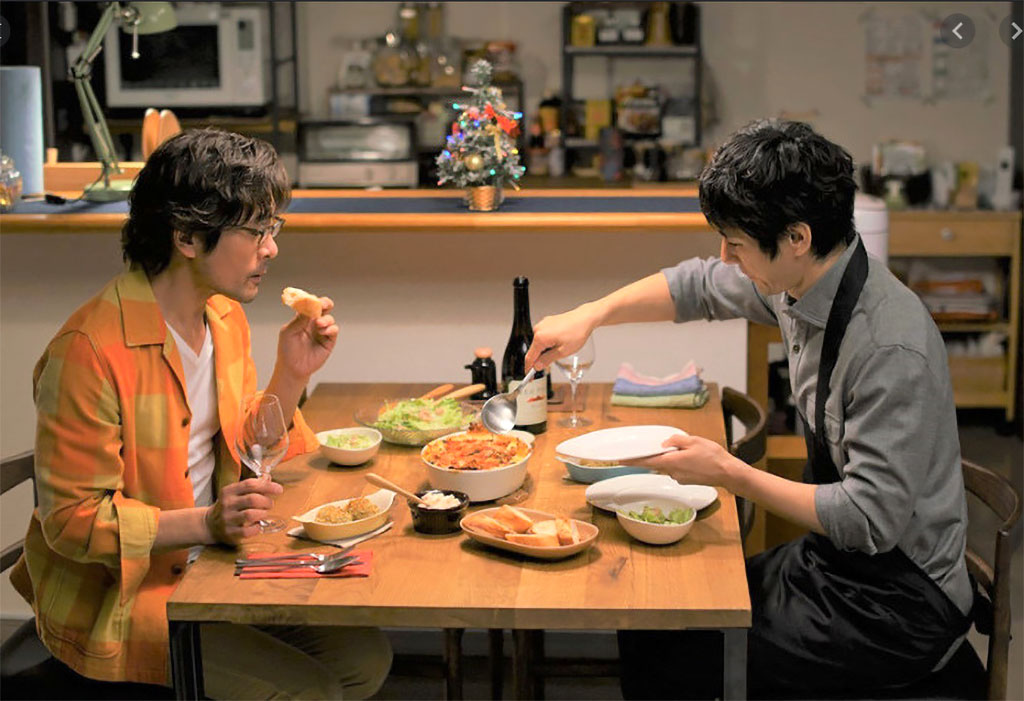
The Japanese series What Did You Eat Yesterday? highlights the struggles of modern Japanese LGBTQIs, such as the allocation of assets in the event of sudden death.
LGBTQI Legal Rights in Japan
While open hostility to homosexuality is rare in Japan, as in when compared to other Asian countries, LBGTQIs unfortunately still enjoy few legal rights in the country.
Tellingly, there is no national protection of any sort against discrimination arising from sexual orientation or gender identity. This is the case from employment to domestic violence, to social bullying.
There is also no avenue for same-gender marriages in Japan, with the country additionally not recognizing same-gender marriages conduct aboard. On these, the implication is that Japanese LGBTQI couples enjoy no couple rights at all. A LGBTQI would be denied visitation in the event his or her partner is hospitalized for critical illness. Inheritance laws also disregard LGBTQI partners.
Without surprise, Japanese LGBTQI couples are also not legally allowed to adopt children.
As abysmal as it sounds, though, progress was made in recent years. In 2015, Tokyo’s Shibuya District began offering “partnership certificates” to same-sex couples, with other city districts and major cities soon to follow.
While these are hardly the same as marriage certificates, they are still useful in areas like hospital visitation rights and housing. Encouragingly, in late 2019, several cities also began recognizing mutually issued partnership certificates. As of 2020, 57 municipalities and two prefectures issue such certificates. This number covers approximately 30 percent of the Japanese population.

Sapporo Rainbow Pride 2019 (Source: wikimedia)
Is Japan a safe/fun destination for LGBTQIs?
The straight-forward answer is, yes. Attitudes towards homosexuality aside, Japan is one of the safest countries in the world. One that prides itself on social order and hospitality too.
To truly enjoy Japan’s gay scene, though, one must first understand and accept the position of homosexuality in the country. This is a position that has been largely unchanged for centuries. It is also a stance that is unlikely to drastically change any time soon.
Specifically, what’s important to note are:
- Public acts of same-sex affection are unlikely to invite open acts of hostility or violence. However, you might be stared at, or in some rare cases, chastised.
- The Japanese abhorrence for meiwaku, or annoyance, applies everywhere. Ensure that your actions and attire do not cause frustration for those around you. Particularly at places of worship.
- Japan’s most prominent “gay villages” are
- Shinjuku Ni-chome (新宿二丁目) in Tokyo
- Doyama Machi (堂山町) in Osaka
- Susukino (すすきの) in Sapporo. (Not exclusively gay)
Note that unlike gay villages in western countries, these districts are largely populated by hole-in-the-wall pubs. Many pubs also only welcome Japanese patrons, with some establishments even openly displaying “Japanese-only” signs. Do not be offended if you see any such sign. Just move on.
- There aren’t any notable gay hotels in Japan. On the other hand, there are many affordable accommodation options near the above-mentioned areas.
- Note that Japan’s male host bars, of which advertisements can often be seen in areas like Tokyo’s Kabukicho, are not meant for gay men. They target females.
- Pubs managed by a transgender “mama,” sometimes known as Okama bars in Anime, could be great fun for straights and LGBTQIs alike. But do read up on them before heading to any. Note that they aren’t that common too.
- Many large Japanese cities have hosted large-scale gay pride parades and events in recent years. The most prominent parades are the Tokyo Rainbow Pride parade and the Tokyo Pride parade.
- Regrettably, the bulk of LGBTQI help groups and hotlines in Japan are meant for residents. If you encounter trouble, it is best to immediately call the police at 110.
Be sure to follow us on Facebook, Instagram, Twitter, and Pinterest for more fun stuff! See you again next time!

